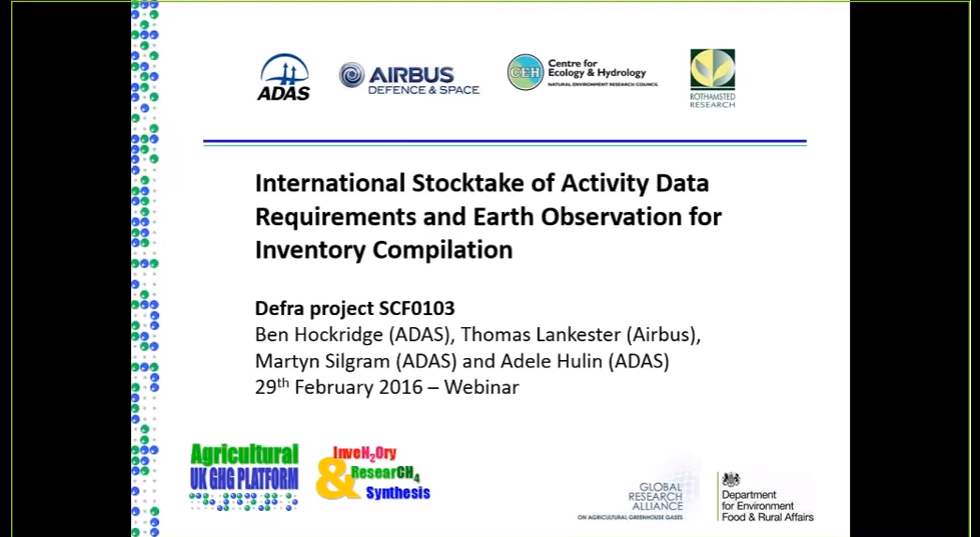The Integrative Research Group (IRG) of the Global Research Alliance on Agricultural Greenhouse Gases (GRA) is hosting its Webinar Meeting “Australian Soil Carbon Offset Methods: the science, the policy and the practice”. Presented by the Australian Centre for International Agricultural Research, the Australian Government Department of Environment and Energy, and the Australian Government Clean Energy Regulator.
When: June 26, 2019, at 9:00 P.M (Canberra UTC+10).
What is this webinar about?
The Australian Emissions Reduction Fund (ERF) is a voluntary scheme that supports Australian businesses, farmers and land managers to take actions to reduce emissions and improve the environment. By running projects to reduce emissions and store carbon, businesses, land managers and others can earn Australian carbon credit units (ACCUs). These units can be sold to the Australian Government through a carbon abatement contract, or to other businesses seeking to offset their emissions. Over 770 projects have been registered under many eligible activities, including energy efficiency, waste management, revegetation, livestock management, savanna fire management and soil carbon sequestration.
Eligible emissions reduction activities are included in ‘methodology determinations’, or ‘methods’ for short. Methods are developed by the government in consultation with industry and technical experts. They set out the rules for estimating carbon abatement from different activities, including in the land sector. These methods ensure that carbon abatement is measurable, verifiable and additional to business as usual operations.
What will you learn?
Join Beverly Henry, Vyt Vilkaitis and Konrad Muller to hear about the soil carbon methods under Australia’s ERF – the development of the underpinning science, the policy framework and the practicalities of the methods.
Beverley, Vyt and Konrad will discuss all this, in the context of the two legislated methods currently approved for soil carbon offsets:
- Estimating sequestration of carbon in soil using default values method (model-based soil carbon)
- Measurement of soil carbon sequestration in agricultural systems method
Speakers:
Beverley Henry – GRA, IRG co-chair, member of the Scientific and Technical Committee of the 4p1000 Initiative.
Through academic and consulting positions, she participates in several Australian and international climate change committees and panels.
Vyt Vilkaitis – Australian Department of the Environment and Energy working on the ERF.
He has worked in government policy for over 10 years focusing on natural resource management.
Konrad Muller – Member of the Australian Government Clean Energy Regulator, ERF Policy Team
He advises on the design, implementation and strategic issues of the ERF. Konrad was formerly in the Australian Government Department of Agriculture with an academic background in agricultural science.
Please register here.
The CIRCASA Project is hosting the webinar: “Strengthening the research community and structuring knowledge” on Friday 03 May, 2019.
In this webinar, the CIRCASA WP1 leader and colleagues will present the WP1 (Workpackage 1: Strengthening the research community and structuring knowledge) activities, first results of the researcher’s survey, as well as current cartography of the scientific network working on the field of soil organic carbon sequestration in agriculture.
Programme: 1 hour
Intro: WP1 overviews and activities: Pete Smith
Researchers survey results: Andy Bray
The Research Network: Jan Verhagen
Speakers:
Pete Smith – WP1 leader, Professor of soils and Global Change at the Institute of Biological Sciences at the University of Aberdeen, Scotland, UK.
Andy Bray – Research fellow, specialising in biogeochemistry and environmental mineralogy at the School of Earth and Environment, University of Leeds, UK.
Jan Verhagen – Senior scientist, specialising in agricultural systems, carbon cycle, and climate adaptation at the Wageningen Plant Research, Netherlands.
A series of webinars took place earlier this year to share the outcomes of the UK-led project “Scoping the potential for Earth Observation to provide agricultural activity data for inventory compilation”.
For those that couldn’t attend, the webinars were recorded and are now available to view online:
- International Stocktake on Activity Data requirements and Earth Observation for Inventory Compilation
- Historic International Earth Observation Usage Case Study
- Using the annually updated but coarse resolution MODIS global land cover product for greenhouse gas accounting. A case study for the UK.
Handouts for each webinar topic are available for download
If you have any comments or questions please use the contact details provided in the handouts.
On June 5, the UK Government Department of Environment Farming and Rural Affairs (DEFRA), to support the Croplands Research Group of the GRA, launched a free, open source modelling platform to help researchers, developers and students share expertise on the use of models for greenhouse gas emissions measurements.
